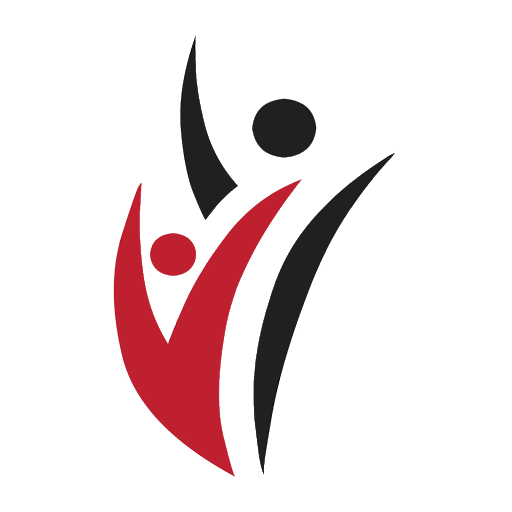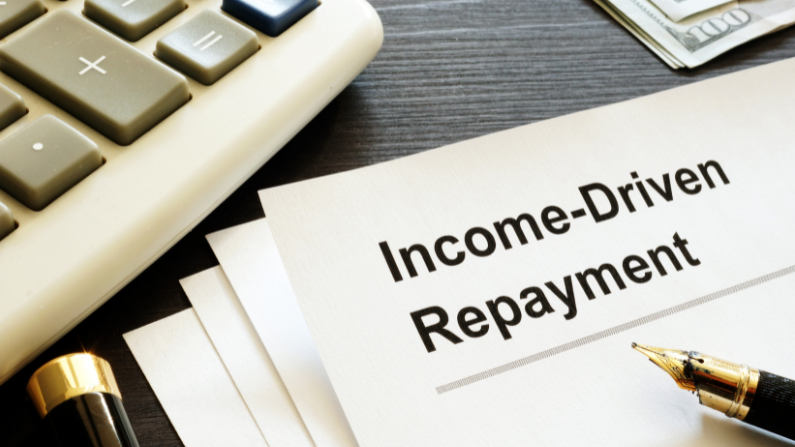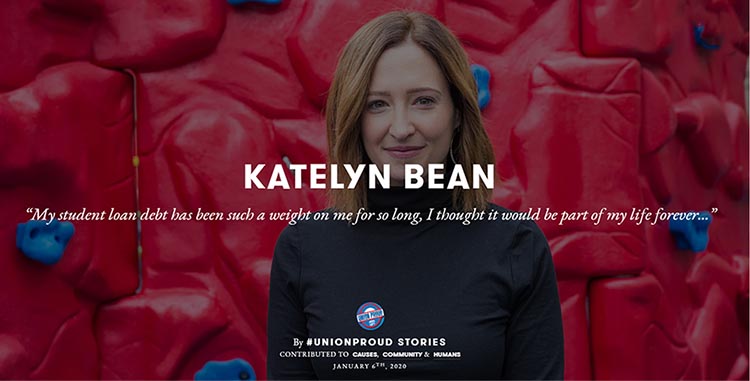Student Loan Repayment Program Consultants
In Default?
If you are in default we can help you find some of the best Federal mandated rehabilitation options.
REPAYMENT PLANS
For your Federal Student Loans, there are plenty of options that are allowed by Federal law. We can help find the best option that you may qualify for and assist in the application process.
FORGIVENESS PROGRAMS
We can provide insight into forgiveness programs that may be available for your situation, although such programs take 10, 20, or even 25 years to complete.
STUDENT LOAN REPAYMENT OPTIONS
We can help choose the best repayment option for your situation and assist you in applying for such a program
Seeing that there is a mountain of student loan debt saddling recent and older graduates, there have been many programs made available to help those struggling with student loan debt.
Standard Repayment Plan
With the standard plan student loan repayment plan, you’ll pay a fixed amount each month until your loans are paid in full. Your monthly payments will be at least $50, and you’ll have up to 30 years to repay your loans with a fixed interest rate. The standard plan is a good fit for you, if according to your budget the IBR, ICR, PAYE plans are higher in a monthly payment, as the standard plan does not account for your finances.
Graduated Repayment Plan
With this plan, your payments start out low and increase every two years. The length of your repayment period will be up to 30 years. If you expect your income to increase steadily over time, this plan may be right for you. Your monthly payment will never be less than the amount of interest that accrues between payments.
Extended Repayment Plan
If you need to make lower monthly payments over a longer period of time than under plans such as the Standard Repayment Plan, then the Extended Repayment Plan may be right for you. Under this plan, your monthly payments are a fixed or graduated amount, made for up to 25 years, and generally lower than payments made under the Standard and Graduated Repayment Plans.
Income-Driven Repayment (IDR) Plans
In all IDR plans, the amount of your monthly payment will be calculated on the basis of the money you make, not the money you owe—specifically, your payment will be based on your discretionary income. Generally speaking, discretionary income is the amount of money you have to spend each month after you pay for the essentials, like rent, utilities, and food. While you can’t really decide not to pay your rent in a given month, you can decide not to go shopping for new clothes — the clothes portion is discretionary. Rather than try to figure out what each person’s expenses are essential compared with their discretionary income, the federal government has a way of calculating your discretionary income: They start with your adjusted gross income (i.e., the income after all legitimate deductions, on which your federal income tax is calculated, also referred to simply as AGI). Then they subtract 150% of the federal poverty line for your family size. The difference between your AGI and 150% of the federal poverty line for your family size is your discretionary income — and that’s the number that will form the basis for calculating your monthly loan payment.
Income-Contingent Repayment (ICR)
This plan gives you the flexibility to meet your Direct Loan obligations without causing undue financial hardship. Each year, your monthly payments will be calculated on the basis of your adjusted gross income (AGI, plus your spouse’s income if you’re married), family size, and the total amount of your Direct Loans. Under the ICR plan you will pay each month the lesser of:
1. The amount you would pay if you repaid your loan in 12 years multiplied by an income percentage factor that varies with your annual income; or
2. 20% of your monthly discretionary income.
If your payments are not large enough to cover the interest that has accumulated on your loans, the unpaid amount will be capitalized once each year. However, capitalization will not exceed 10% of the original amount you owed when you entered repayment. Interest will continue to accumulate but will no longer be capitalized. The maximum repayment period is 25 years. If you haven’t fully repaid your loans after 25 years under this plan, the unpaid portion will be discharged. You may, however, have to pay taxes on the amount that is discharged.
Income-Based Repayment (IBR)
Under this plan, your required monthly payment will be based on your income during any period when you have a partial financial hardship. Your monthly payment may be adjusted annually. The maximum repayment period under this plan may exceed 25 years. If you meet certain requirements over a specified period of time, you may qualify for cancellation of any outstanding balance of your loans.
Pay As You Earn (PAYE)
In December 2012 the DOE announced that borrowers with Federal Student Loans may now be able to take advantage of a new repayment plan that could lower their monthly federal student loan payments. The plan, known as Pay As You Earn, caps monthly payments for many recent graduates at an amount that is affordable based on their annual income. This new option follows through on President Obama’s promise to provide student graduates with relief on their student loan payments and help them responsibly manage their debt payments.
Saving on a Valuable Education (SAVE)
Replaced the Revised Pay As You Earn (REPAYE). Borrowers on the REPAYE Plan automatically get the benefits of the new SAVE Plan.
-
The SAVE Plan lowers payments for almost all people compared to other IDR plans because your payments are based on a smaller portion of your adjusted gross income (AGI).
-
The SAVE Plan has an interest benefit: If you make your full monthly payment, but it is not enough to cover the accrued monthly interest, the government covers the rest of the interest that accrued that month. This means that the SAVE Plan prevents your balance from growing due to unpaid interest.
-
Beginning in February 2024, the SAVE Plan will give borrowers who originally borrowed $12,000 or less forgiveness after as few as 10 years.
Public Service Loan Forgiveness (PSLF)
What is the Public Service Loan Forgiveness (PSLF) Program
The PSLF Program was established to encourage individuals to work in public service by forgiving the remaining balance of their Direct Loans after they have made 120 qualifying payments while employed by a qualifying employer.
What are the eligibility requirements for loan forgiveness under the PSLF Program?
You must be employed full-time by a qualifying employer when you make each of the required 120 qualifying payments on your Direct Loans, and also at the time you apply for loan forgiveness after making the last of those 120 payments, and when you receive loan forgiveness.
Are loan amounts forgiven under PSLF considered taxable by the IRS?
No. According to the Internal Revenue Service (IRS), student loan amounts forgiven under PSLF are not considered income for tax purposes. For more information, check with the IRS or a tax advisor.
Does my income level determine eligibility for PSLF?
There is no income requirement to qualify for PSLF. However, since your required monthly payment amount under most of the qualifying PSLF repayment plans is based on your income, your income level over the course of your public service employment may be a factor in determining whether you have a remaining loan balance to be forgiven after making 120 qualifying payments.
Can I be certain that the PSLF Program will exist by the time I have made my 120 qualifying payments?
We cannot make any guarantees about the future availability of PSLF. The PSLF Program was created by Congress, and Congress could change or end the PSLF Program.
I have federal student loans from a program other than the Direct Loan Program. Can I qualify for PSLF?
PSLF is available only for Direct Loans. However, if you have loans made under another federal student loan program, you may consolidate those loans into a Direct Consolidation Loan, which is eligible for PSLF.
Student Loan Debt Consolidation
Student Loan Consolidation is available to help students reduce their federal education debts by combining all of their outstanding loans into a single loan.
WHO IS ELIGIBLE FOR A CONSOLIDATION?
Consolidation Loans are available to most borrowers of Federal education loans and come from one of two sources — Direct Consolidation Loans and Federal Consolidation Loans.
WHAT IS CONSOLIDATION?
The Financial meaning of the term: Taking Multiple debts or credit lines and consolidating them into one new payoff plan. Frequently, this is a consolidation loan, provided to consolidate debts into one loan with one payment.
WHY CONSOLIDATE?
Consolidation loans allow borrowers to combine one or more of their Federal education loans into a new loan that offers several advantages.
One Lender One Payment
Repayment Options
Borrowers can choose from multiple repayment plans with various term selections to repay their consolidation loan(s), including an Income-Based Repayment (IBR), Income Contingent Repayment (ICR), or Pay as You Earn (PAYE). These Plans are designed to be flexible to meet the different and changing needs of borrowers. With a consolidation loan, borrowers can switch repayment plans at any time.
No Minimum or Maximum Loan Amounts
There is no minimum amount required to qualify for a Direct Consolidation Loan.
Reduced Monthly Payments
A consolidation loan may ease the strain on a borrower’s budget by lowering the borrower’s overall monthly payment. The minimum monthly payment on a consolidation loan may be lower than the combined payments charged on a borrower’s Federal education loans.
Strengthen Your Credit
All federal and private student loans are considered unsecured debt. That means they are not backed by collateral, by some asset – a house, a car, or a piece of land. Unsecured student loan debt is looked upon more favorably by lenders when it comes to evaluating your creditworthiness. Student loan debt is often considered good debt because it represents an investment in your future. If you are timely in making your federal and/or private student loan payments to your lender, having this type of debt can actually begin to strengthen your credit rating after about six months of steady payment. Better yet, if your student loans are consolidated, thereby reducing the number of active accounts on your credit report, it can heighten your score as well.




Select Page